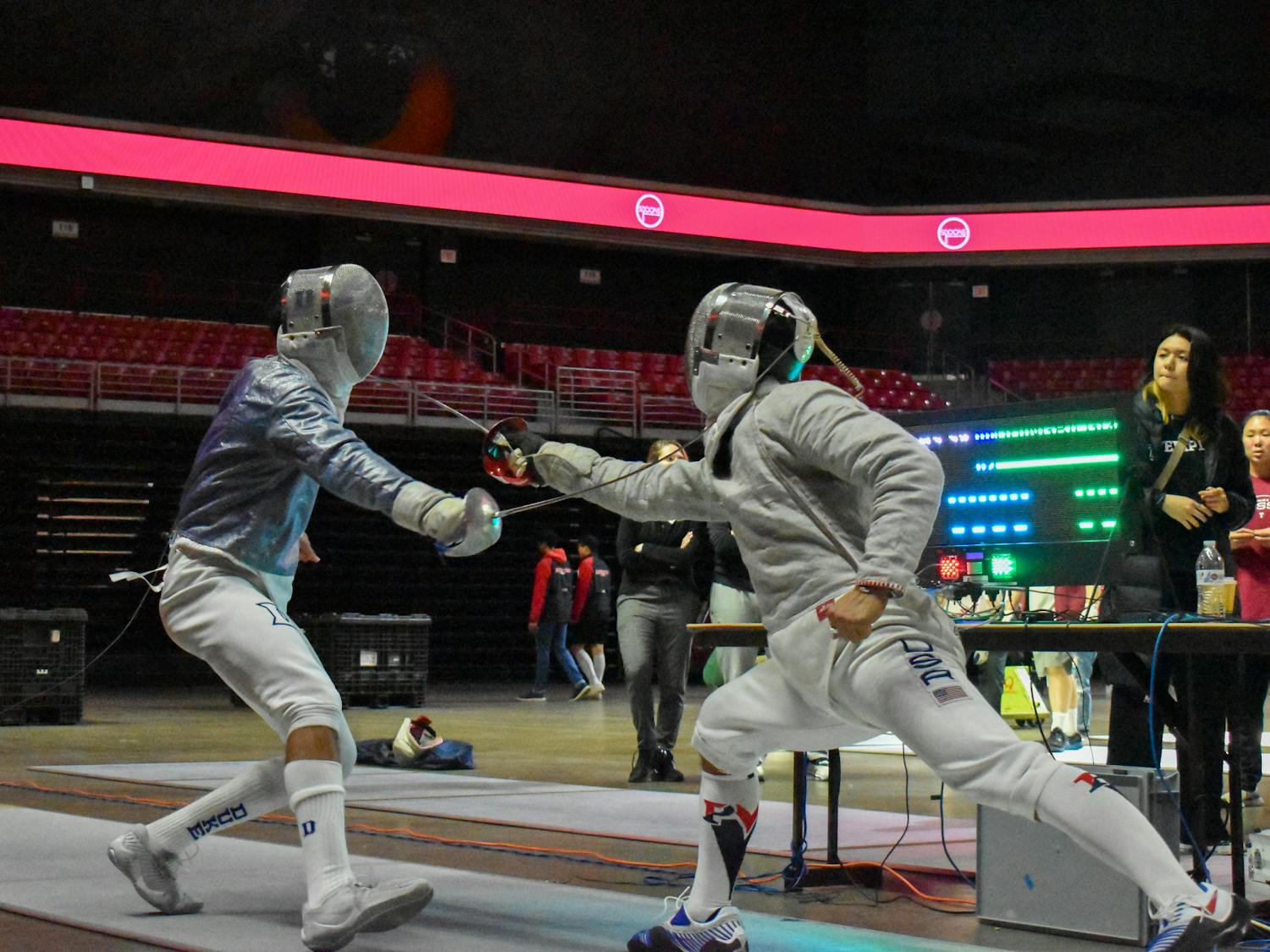When the Princeton Tigers danced all the way to the Sweet Sixteen of the NCAA Tournament, knocking off marquee Power Five programs Arizona and Missouri in the process, they earned glory for themselves, and the conference they call home. For a single moment of madness, the Ivy League belonged — no longer relegated to the shadows of Division I basketball. On the biggest stage with the brightest lights, the league announced in a loud voice: “We are here. We have real players. Give us respect.”
But just as quickly as that acclaim arrived, it dissipated. The Tigers fell to Creighton, and in the blink of an eye, the basketball world moved on to the next Cinderella story. Now, the test to determine whether any of that respect remains rests on the shoulders of Jordan Dingle.
On April 5, CBS Sports’ Jon Rothstein announced that Dingle, a junior guard for Penn men’s basketball, would enter the 2023 NBA Draft while maintaining his college eligibility. This allows Dingle to undergo the pre-draft process and receive evaluations from NBA teams, but leaves the door open for a return to collegiate play if he is not satisfied with what he hears.
Only one Ivy League player has been selected in the NBA Draft since 1995: Yale’s Miye Oni in 2019, who was selected with the 58th overall pick (out of 60). Several other recent Ivy Leaguers have gone undrafted but still played in the NBA, including 2019 Princeton product Devin Cannady, and Harvard’s Jeremy Lin, who played in the NBA from 2010-19, and briefly became the most famous face in the sport in 2012 when his stellar play led the New York Knicks to a seven-game win streak — a fleeting yet magical run known as “Linsanity.”
All this to say that Ivy League players are few and far between at the NBA level. Oni’s stint was a quick one, ending in 2022. There are currently zero Ivy League players on active NBA rosters.
Dingle is the type of player who could conceivably break that trend. He is the Ivy League Player of the Year, the Big Five Player of the Year, the second-leading scorer in America. He is not just a great Ivy League player, he is a great player. Period.
How Dingle is evaluated by the NBA will go a long way toward indicating how the NBA, and the greater basketball world, feels about the Ivy League and its legitimacy as a conference. For if Dingle, a crackling star whose scoring prowess transcends the bounds of the conference, cannot get a shot, who can?
As it stands, there are no mainstream mock drafts that project Dingle to be taken within the top 60 picks. Princeton’s Tosan Evbuomwan, who declared for this year’s draft as well and led the Tigers on that tournament run, is also slated to go undrafted, with NBA Draft Room ranking him at the 86th best prospect in the class. Dingle and Evbuoumwan have very different play styles — the former is a volume scoring guard, while the latter is a lengthy, do-it-all forward. But the pair have one important thing in common: the Ivy League smudge on their perception as players.
RELATED:
The numbers behind Penn basketball's 2022-23 season
Big 5 adds Drexel, announces showcase event at Wells Fargo Center
What separates Dingle from Evboumwan is the way he has maximized his Ivy League potential. At 6’8” with a 6’11” wingspan, Evbuomwan is more intriguing as a project. His game is already refined, but with his league-ready size, NBA teams are more inclined to invest in what he could still become. Dingle’s frame is undersized in comparison — 6’3”, but stout, and what you see is what you get. He can still grow as a player. But that growth, if done in the Red and Blue, will do little to change his perception.
In terms of improving his NBA stock, Dingle has hit his Ivy League ceiling.
With that in mind, seeing how Dingle’s draft process shakes out will be the ultimate litmus test for the way the Ivy League is recognized. He is an unstoppable scorer, an undeniable talent, and yet, that may not be enough to overcome the judgment of his conference. Dingle has done his part, and in many ways, the Ivy League has done theirs. But only as the draft draws closer will we know if that is enough to overcome the mound of precedent that stands in the way.
WALKER CARNATHAN is a freshman deputy sports editor studying English from Harrisburg, Pa. All comments should be directed to dpsports@thedp.com.









